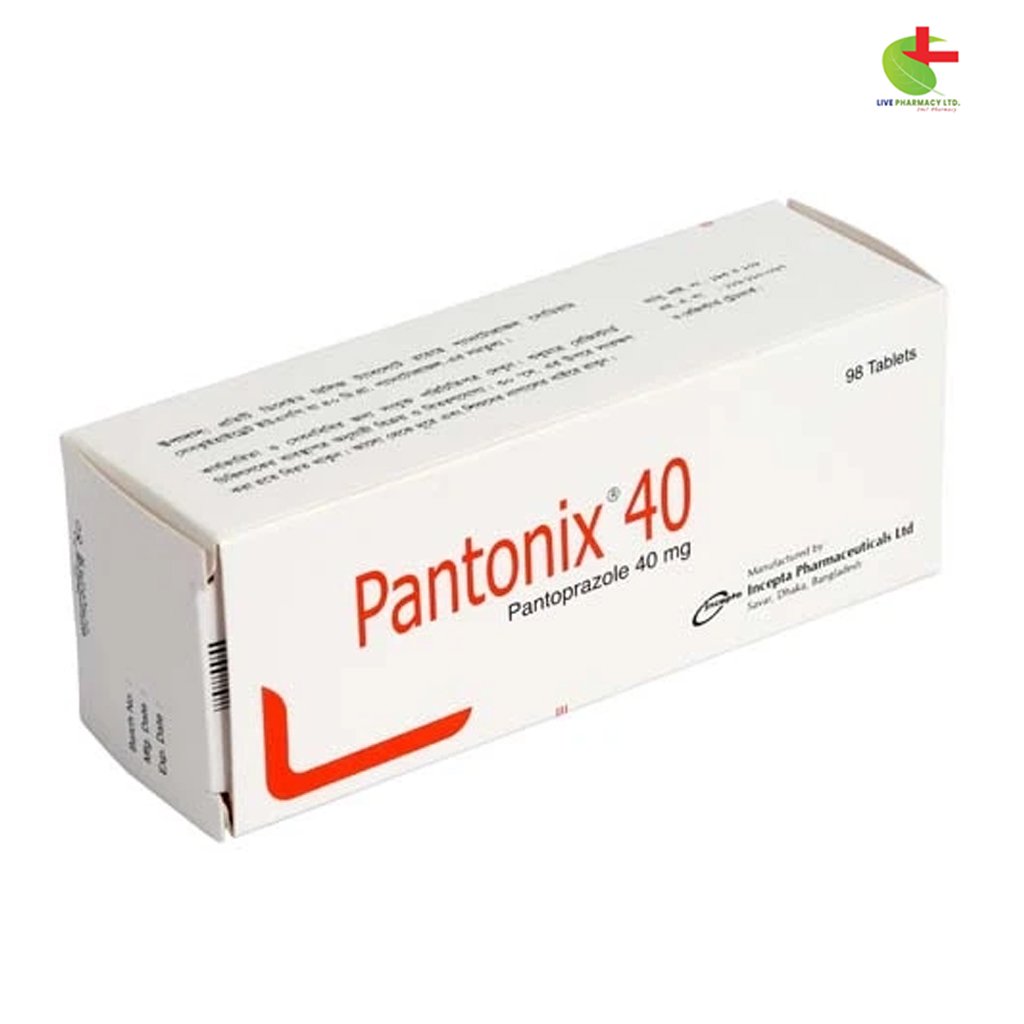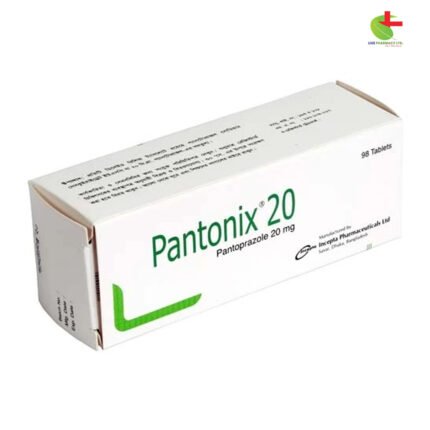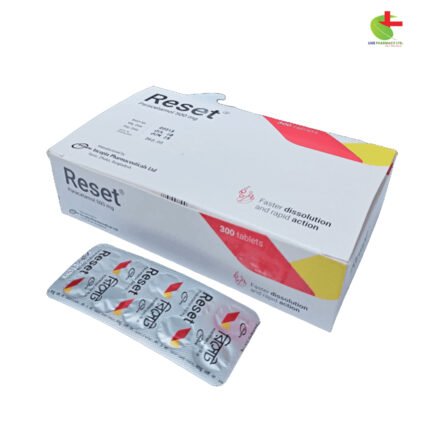Pantonix 40
140.00৳ Strip
- Pantonix is a proton pump inhibitor that effectively reduces gastric acid secretion.
- Indicated for peptic ulcers, gastroesophageal reflux disease (GERD), and Zollinger-Ellison syndrome.
- Available in both oral and intravenous forms for convenient management of acid-related disorders.
- Well-tolerated formula provides relief from symptoms while supporting healing.
- Always consult a healthcare professional before use.
 Brand
Brand
|
Incepta Pharmaceuticals Ltd |
|---|---|
 Generics
Generics
|
Pantoprazole Sodium |
 Type
Type
|
Tablet |
Indications
Pantonix is indicated for conditions where reducing acid secretion provides therapeutic benefits, including:
- Peptic ulcer diseases
- Gastroesophageal reflux disease (GERD)
- NSAID-induced ulcers
- Eradication of Helicobacter pylori (in combination with antibiotics)
- Zollinger-Ellison Syndrome
Always consult a registered healthcare professional before use.
Pharmacology
Pantoprazole is a proton pump inhibitor (PPI) that effectively blocks the final step of gastric acid production. It achieves this by covalently binding to the H+/K+ ATPase enzyme in the gastric parietal cells, leading to a sustained reduction in both basal and stimulated gastric acid secretion for over 24 hours.
Dosage & Administration
Oral Administration:
- Benign Gastric Ulcer: 40 mg daily in the morning for 4 weeks; continue for an additional 4 weeks if healing is incomplete.
- Gastroesophageal Reflux Disease: 20-40 mg daily in the morning for 4 weeks; if needed, continue for another 4 weeks. Maintenance dose is 20 mg daily, adjustable to 40 mg.
- Duodenal Ulcer: 40 mg daily in the morning for 2 weeks, extend for another 2 weeks if necessary.
- Duodenal Ulcer with H. pylori: 40 mg twice daily, in combination with Amoxicillin (1 g) and Clarithromycin (500 mg) both twice daily for one week, or Clarithromycin (250 mg) and Metronidazole (400 mg) both twice daily for one week.
- Prophylaxis of NSAID-related Gastric Ulcer: 20 mg daily for patients on long-term NSAIDs.
- Zollinger-Ellison Syndrome: Start with 80 mg daily, adjusting based on patient response (maximum 40 mg for elderly patients); doses above 80 mg should be split into two doses.
IV Injection:
- Duodenal and Gastric Ulcers: 40 mg once daily for 7-10 days.
- GERD with Erosive Esophagitis: 40 mg once daily for 7-10 days.
- Prevention of Peptic Ulcer Rebleeding: IV 80 mg followed by an 8 mg/hour infusion for 72 hours.
- Prophylaxis of Acid Aspiration: 80 mg IV every 12 hours for 24 hours, followed by 40 mg every 12 hours.
- Long-term Management of Zollinger-Ellison Syndrome: 80 mg IV every 12 hours, with the possibility to increase to 80 mg every 8 hours as necessary.
Always consult a registered healthcare professional before use.
Interaction
No significant drug interactions have been identified in clinical studies.
Contraindications
Pantonix is contraindicated in individuals with known hypersensitivity to any component of the formulation.
Side Effects
Pantonix is generally well-tolerated for both short- and long-term use. Common side effects include headache and diarrhea; rare side effects may involve abdominal pain, flatulence, rash, insomnia, and hyperglycemia.
Pregnancy & Lactation
Pantoprazole is classified as FDA Pregnancy Category B. While animal studies show no adverse effects, adequate studies in pregnant women are lacking. The medication is excreted in human milk, so the decision to continue nursing or discontinue the drug should be made based on the benefits to the mother.
Precautions & Warnings
Patients should be advised not to split, chew, or crush Pantonix tablets. Long-term use may lead to malabsorption of vitamin B12 (cyanocobalamin) or increase the risk of osteoporosis-related issues.
Overdose Effects
No known overdose symptoms have been reported in humans. Due to high protein binding, Pantoprazole is not easily dialyzable. Supportive management is recommended in cases of overdose.
Therapeutic Class
Proton Pump Inhibitor
Reconstitution
IV Injection Use: Pantonix lyophilized powder should only be administered intravenously. Reconstitute by adding 10 ml of 0.9% Sodium Chloride Injection to the powder vial. Administer slowly over 2 to 5 minutes. Use freshly prepared solutions, which can be stored at room temperature (up to 30°C) for up to 4 hours.
IV Infusion Use: Reconstitute with 10 ml of 0.9% Sodium Chloride Injection, then dilute with additional 0.9% Sodium Chloride or 5% Dextrose to a final volume of 100 ml. The reconstituted solution can be stored at room temperature for a maximum of 4 hours before further dilution, and the admixed solution must be used within 24 hours of initial preparation.
Storage Conditions
Store in a dry place, away from light and heat. Keep out of reach of children.













Reviews
There are no reviews yet.